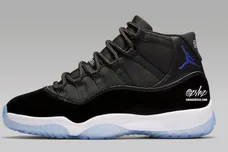If the radio industry and other forms of traditional music consumption media weren't worried before, they probably should start to tremble a little bit with this news.
According to Forbes, Americans set a new record for music streaming last week, racking up a 8.3 billion streams in the span of just one week. It's a new record for the country, as per stats published by Neilsen, and is also a further indicator that streaming services, for better or for worse, are the principal way enthusiasts of hip-hop or any other genre of music are engaging with their favorite artists or songs. In fact, those numbers could be astronomically larger too, since YouTube views were not taken into account during the collection period, nor was any use of a service like Pandora (which, to be fair, functions more as a radio platform).
The Forbes report makes the rough estimate that, based on the figure generated by the Neilsen research, every American would've listened to at least 25 songs during that week-long period but, of course, logic dictates that this statement would be largely incorrect based on subscription numbers. Alongside Spotify boasting 140 million paid subscribers at last count and Apple Music having just crossed 30 million, the number of additional users aren't known (i.e. - free Spotify account holders), but even with that in mind, there are a large group of Americans who are clearly consuming hundreds, if not thousands, of songs every week. It's not hard to see how this new record of 8.3 billion streams in one week could easily be broken before the end of the year, perhaps even several times over.
The overall outlook is even more impressive, based on third quarter numbers that Forbes obtained as well. According to that data, Americans have already recorded 287 billion on-demand streams up this point in the calendar year. Just like the other model, video streams were not counted in this sum, but when they are added, the total looks more like 442 billion. With physical album sales continuing to dwindle down to near-nothingness and the radio industry quickly seeming like an archaic entity, streaming has moved into focus as the de facto method of music consumption in the United States. There's no going back either.
Streaming










